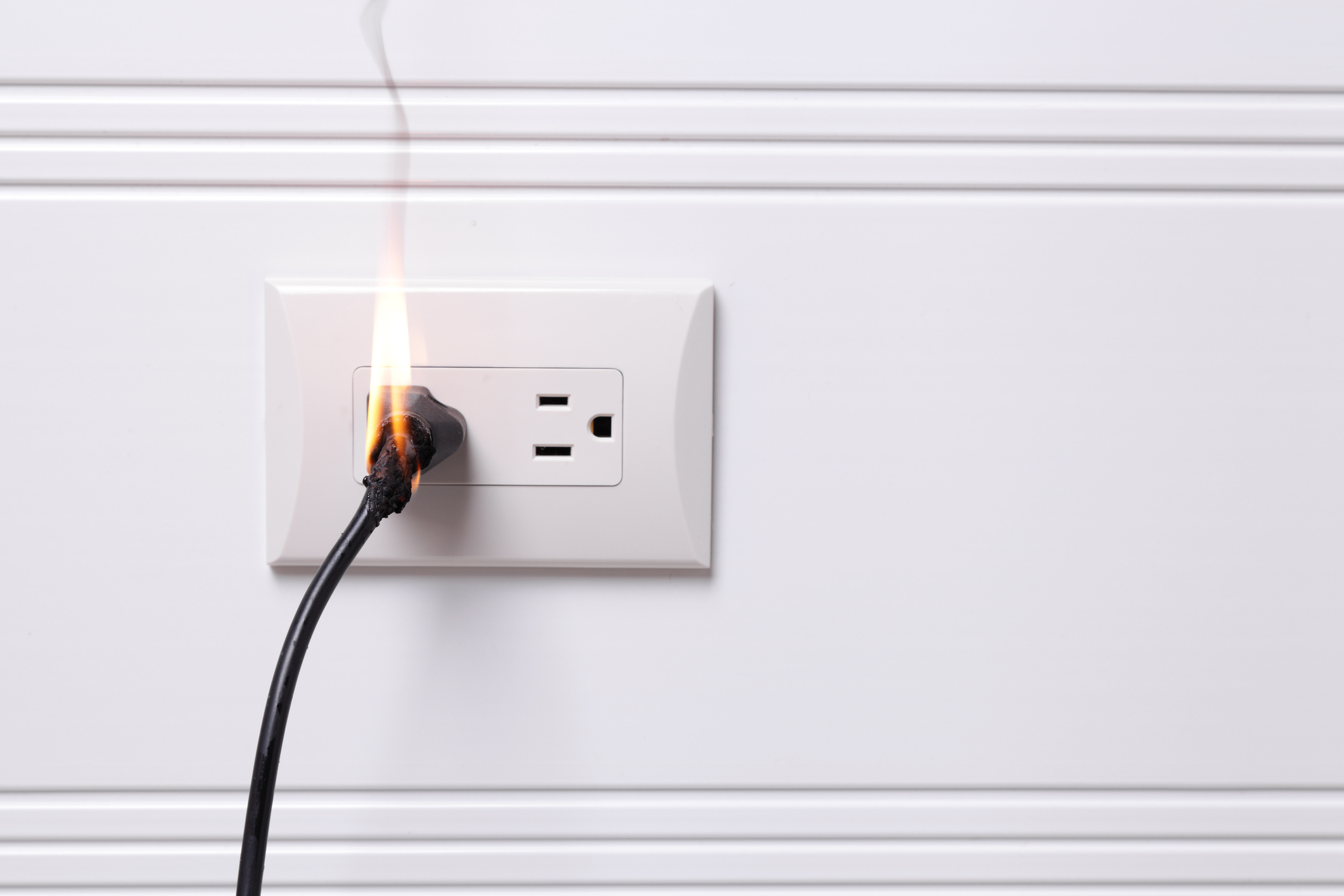McCauley Culkin, star of the blockbuster Christmas movie Home Alone, managed to hold down the fort pretty well for a ten-year-old kid when his parents unwittingly deserted him over Christmas vacation. Nevertheless, with midwinter breaks approaching we want to remind you how important it is to be vigilant when preparing to leave your home for a few days or longer, particularly during the colder months when more electrical fires occur due to heating equipment. So what’s the best rule of thumb? The easy answer is to disconnect. And we’re not talking about leaving your phone or laptop behind when you head to the beach or the slopes. We’re talking literally disconnecting – as in pulling the plugs. According to the National Fire Protection Association (NFPA), while cooking fires remain the number one cause of home fires, electrical fires kill far more people proportionally.
In order to try to more fully grasp just how and why electrical systems are such a potential source of ignition, let’s pretend to put on a pair of x-ray glasses that show all of the wiring in a typical home or building. If such glasses existed, you’d be amazed at how energized practically every square inch of the floors, ceilings and walls are – all the time! The fact is when indoors, we are spending our days in electrical, energized “cages”. Yes, you are conserving energy output when you turn off lights and appliances before leaving or heading to bed. No, the electrical systems are not “shutting down” with you…unless they are all unplugged! A potent enemy remains energized, just below the surfaces – and thus out of mind. To make matters worse, multiple sources of fuel (electrical engineer speak for combustible materials) typically abound on top of or next to these energized surfaces: upholstery, carpeting, furniture, paper or plastic, etc.
When you minimize the number of electrical appliances that are energized by unplugging them when you leave, you lower the statistics of possible overheating, short-circuiting and subsequent fire. (It is arguably wise to make your home appear occupied by leaving a light or two on timers at night time. But choose a lamp or light that is relatively new — to minimize the risk of worn wiring in the cord — and always be sure that the wattage of the bulb does not exceed the recommended level).
Circuit breakers are meant to shut off when the breakers detect too large a surge of energy, but electrical wiring can be inadequate or just plain old. Mice can get inside walls and gnaw away at the insulation inside the wire cables. When leaving a home alone for a couple of months or more, even refrigerators and freezers, which suck up significant power, should be unplugged with doors left ajar. And turn down that heat so the furnace gets a break: “Heating equipment was the second leading cause of home fires, tied with electrical distribution and lighting equipment as the third leading cause of home fire deaths.” (NFPA Research, Dec. 2018). If you’re just leaving for a couple of days, turn down the heat at least a few degrees so it won’t take too long to reheat the house upon your return.
Never, ever try to do-it-yourself when it comes to electrical work. This point cannot be stressed enough: only rely upon a fully licensed professional electrician to avoid piecemeal and unsafe wiring practices.Click Here To See Our Full List of Experts Click Here To Submit an Inquiry about a possible Claim or Case.






